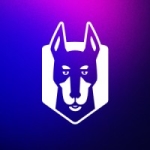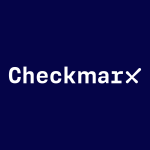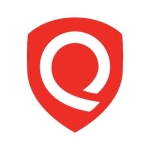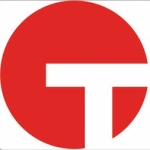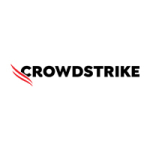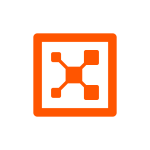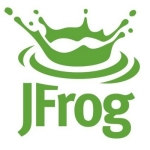What is our primary use case?
We use SentinelOne Singularity Cloud Security as our Cloud Security Posture Management tool.
How has it helped my organization?
SentinelOne Singularity Cloud Security is easy to use. While some features, like advanced graphics and custom drag-and-drop filters, might have a learning curve, most functionalities are intuitive. Clicking on "Asset Inventory" provides a clear list of all our assets. The filters are logically organized by resource type, account ID, and other relevant categories. In short, most of the platform is straightforward, allowing users to become comfortable within 15 minutes. However, advanced capabilities like custom visualizations and automated filtering through drag-and-drop may require additional time to master.
SentinelOne Singularity Cloud Security creates a comprehensive inventory of all resources within our cloud infrastructure. It automatically identifies any misconfigurations for each of these resources. The easy-to-track capabilities are further enhanced by automatic integration with Jira. Additionally, SentinelOne Singularity Cloud Security serves as the primary source of evidence for audits and compliance purposes. It documents the resources we identified with misconfigurations and demonstrates that we have rectified them. This functionality simplifies the process of providing evidence to auditors.
We experienced the benefits of SentinelOne Singularity Cloud Security immediately after onboarding our entire Cisco setup. However, there was likely a waiting period of up to six hours for the platform to fully populate with information about our infrastructure, resources, and so on. Despite this wait, some immediate benefits were gained. SentinelOne Singularity Cloud Security likely identified a list of potential misconfigurations across our accounts. This provided a starting point for further investigation and remediation. Of course, to fully leverage SentinelOne Singularity Cloud Security's capabilities, we might need to integrate it with our existing external tools. However, the initial onboarding process itself yielded some valuable insights.
SentinelOne Singularity Cloud Security reduces the number of false positives we encounter. Initially, we relied heavily on custom engineering, which created a lot of noise. The code might not have been scalable, or it might have only triggered under specific conditions. We struggled to manage this custom tooling as our environment grew. When we considered scaling our operations, we realized this approach wouldn't be sustainable. SentinelOne Singularity Cloud Security provided a well-designed system that addressed these challenges. Even during configuration, SentinelOne Singularity Cloud Security can determine if something is misconfigured or not. However, SentinelOne Singularity Cloud Security also allows us to suppress findings that might be flagged as security vulnerabilities in a traditional sense, but are expected behavior in our specific context. For example, we might have developed a custom way to handle a specific situation like a three-bucket container for a site. SentinelOne Singularity Cloud Security allows us to suppress these findings, resulting in a significant reduction in false positives. Integration with SentinelOne Singularity Cloud Security was very straightforward. Furthermore, suppression occurs at the source where misconfigurations are generated. This eliminates the need for an additional filtering layer. Imagine having 100 issues to address, and needing to manually filter out the ones that are not genuine issues. SentinelOne Singularity Cloud Security takes care of this filtering within the platform itself.
SentinelOne Singularity Cloud Security has improved our risk posture by giving us greater visibility into our infrastructure. This includes niche resources and misconfigurations that we weren't previously tracking or aware of. Unlike traditional tools that focus on specific resources or make assumptions, SentinelOne Singularity Cloud Security performs a holistic scan of our entire account. This has given us a much better understanding of our current attack surface. Once these vulnerabilities were identified, we were able to prioritize and remediate them, leading to a long-term improvement in our overall security posture.
SentinelOne Singularity Cloud Security has reduced our mean time to remediation. It's slightly better than our previous approach because we were also scanning daily. However, SentinelOne Singularity Cloud Security also includes scanning for many more resources than we were managing ourselves. So, while the time to fix individual problems might be similar, perhaps slightly less, the reports generated by SentinelOne Singularity Cloud Security are more comprehensive and complete than what we had before. Additionally, SentinelOne Singularity Cloud Security helped us identify a number of additional resources that need fixing, which we weren't adequately tracking in the first place. Once a problem is identified and confirmed as a true positive, it takes no more than 15 minutes to fix it.
SentinelOne Singularity Cloud Security facilitates collaboration between our teams. We have three main groups: application security, infrastructure security, and compliance. The infrastructure team handles the entire SentinelOne Singularity Cloud Security process, from generating reports and onboarding resources to acting on them. This has streamlined our workflow by consolidating everything into a single view. I now have all the information I need in one place. However, it's important to note that our application security team doesn't currently interact with SentinelOne Singularity Cloud Security.
What is most valuable?
The most valuable features of SentinelOne Singularity Cloud Security are the asset inventory and issue indexing. Once I've onboarded all the cloud accounts I want to manage with SentinelOne Singularity Cloud Security, it can automatically create an inventory of all resource types across AWS. Additionally, it can identify misconfigurations for those specific resources.
Another key feature we appreciate is the ability to create custom rules for up to ten users. This functionality is useful because SentinelOne Singularity Cloud Security also collects generic information and metadata about each resource. This allows for granular filtering. For example, we can easily query to find only servers with a specific tag. This filtering capability is valuable for investigations, ad-hoc queries, and data gathering.
Finally, the integration module deserves mention as well. We use Jira internally to track all our tools, security reviews, and bugs. SentinelOne Singularity Cloud Security can directly push issues to Jira, making it very easy for us to track them. This eliminates the need to constantly return to the SentinelOne Singularity Cloud Security platform to see which issues were generated.
What needs improvement?
SentinelOne Singularity Cloud Security can be improved by developing a comprehensive set of features that allow for automated workflows. While the current dashboard is functional, it could be made more actionable by incorporating additional functionalities. For instance, drag-and-drop functionality would simplify the creation of integrations. Additionally, valuable data can be retrieved from the platform using APIs and displayed on the dashboard, potentially using tools like Tableau for visualization. This is just one example, but it highlights the potential for expanding SentinelOne Singularity Cloud Security's capabilities by enabling greater integration with other tools, even those not currently supported.
For how long have I used the solution?
I have been using SentinelOne Singularity Cloud Security for six months.
There was a phase where we built a proof of concept using the SentinelOne Singularity Cloud Security platform to understand if it could directly address the problems we're currently facing. After finalizing the POC, we conducted testing and identified a baseline for future comparisons. Then, we moved into the implementation phase, and now the system is fully operational.
What do I think about the stability of the solution?
SentinelOne Singularity Cloud Security is stable.
What do I think about the scalability of the solution?
SentinelOne Singularity Cloud Security is scalable. We have not encountered any issues with the number of accounts and services we are using.
Which solution did I use previously and why did I switch?
Previously, we managed our cloud security posture with in-house solutions built using open-source tools and custom code. However, as the number of accounts grew, this approach became difficult to scale and maintain. Additionally, the reporting capabilities of our custom tools didn't meet the increasingly stringent compliance requirements. To address these challenges, we sought an external, vendor-managed Cloud Security Posture Management tool.
How was the initial setup?
The initial deployment of SentinelOne Singularity Cloud Security was easy because their implementation team collaborated closely with one of our cloud security engineers. Since there were no agents or software to install, onboarding accounts simply involved creating a role for them. This role grants the platform read-only access to our infrastructure. The process is very streamlined; our team can onboard an entire account within minutes. However, the first time an account is onboarded, it takes some time to ingest all of its resources and information.
The entire deployment took less than a week. This included not only onboarding accounts but also gaining a holistic understanding of the platform and its capabilities. SentinelOne Singularity Cloud Security also came to our office to showcase the modules we could leverage and how we could use them effectively. Since this was our first time working with SentinelOne Singularity Cloud Security, our team actively collaborated with them to resolve any issues we encountered.
What about the implementation team?
One engineer from our organization worked with a team from SentinelOne Singularity Cloud Security to implement the solution.
What's my experience with pricing, setup cost, and licensing?
Pricing is based on modules, which was ideal for us. We weren't interested in the platform's full capability at first. Our priority was to establish foundational practices like maintaining an asset inventory and identifying misconfigurations. We then aimed to streamline these processes. Thankfully, SentinelOne Singularity Cloud Security's modular pricing allowed us to pay for only the features we needed, unlike Wiz. With Wiz, we would have paid for the entire platform upfront, potentially leaving us with unused features. This would have been a poor return on investment, especially considering Wiz's high cost. In essence, their pricing model wouldn't have suited our needs. Even if we had eventually used all of SentinelOne Singularity Cloud Security's features, the initial cost would still have been lower than Wiz in the long run.
Which other solutions did I evaluate?
After evaluating several options, including SentinelOne Singularity Cloud Security and Wiz, we determined that SentinelOne Singularity Cloud Security was the best fit for our needs, particularly in terms of cost. SentinelOne Singularity Cloud Security provides a comprehensive view of potential security issues in our cloud infrastructure, allowing us to map them to relevant compliance frameworks, custom security requirements, or internal engineering standards. This enables us to effectively track and remediate these issues, ensuring a more secure cloud environment.
The Wiz platform offered a wide range of features that weren't essential for our current needs. For instance, they provided data security and AI-powered security posture management. However, our current security maturity level wouldn't allow us to fully utilize these capabilities. Additionally, Wiz is a comprehensive platform, and individual modules aren't available separately. In contrast, SentinelOne Singularity Cloud Security allowed for closer collaboration. They could customize the platform's functionalities to meet our specific requirements. Moreover, SentinelOne Singularity Cloud Security was significantly more cost-effective. While I can't recall the exact price difference, it was a substantial saving. Furthermore, SentinelOne Singularity Cloud Security's support team was incredibly responsive. They were receptive to our suggestions for features that might be beneficial in the future. This flexibility, along with the platform's affordability, ultimately led us to choose SentinelOne Singularity Cloud Security.
What other advice do I have?
I would rate SentinelOne Singularity Cloud Security eight out of ten.
We initially considered the agentless vulnerability scanning as a cloud security management tool, not a host-based security solution. Therefore, we opted against installing agents. Instead, we simply connected our AWS accounts through IAM, allowing the scanner to comprehensively scan all necessary resources and gather the required information.
The maintenance is taken care of by SentinelOne Singularity Cloud Security directly.
Before deploying SentinelOne Singularity Cloud Security, it's important to fully understand all its capabilities. While we're currently using one specific feature, SentinelOne Singularity Cloud Security offers a wide range of functionalities. Gaining a clear internal understanding of your specific needs for SentinelOne Singularity Cloud Security will help you determine the optimal model. Focusing solely on features without a defined purpose can lead to unnecessary costs. It's more efficient to obtain a quote for the model that aligns with your current needs. As your requirements evolve, you can then expand functionality by integrating additional modules.
Which deployment model are you using for this solution?
Public Cloud
Disclosure: PeerSpot contacted the reviewer to collect the review and to validate authenticity. The reviewer was referred by the vendor, but the review is not subject to editing or approval by the vendor.






